Home>Interior Design>Can You Put Dish Soap In The Dishwasher? Experts Explain
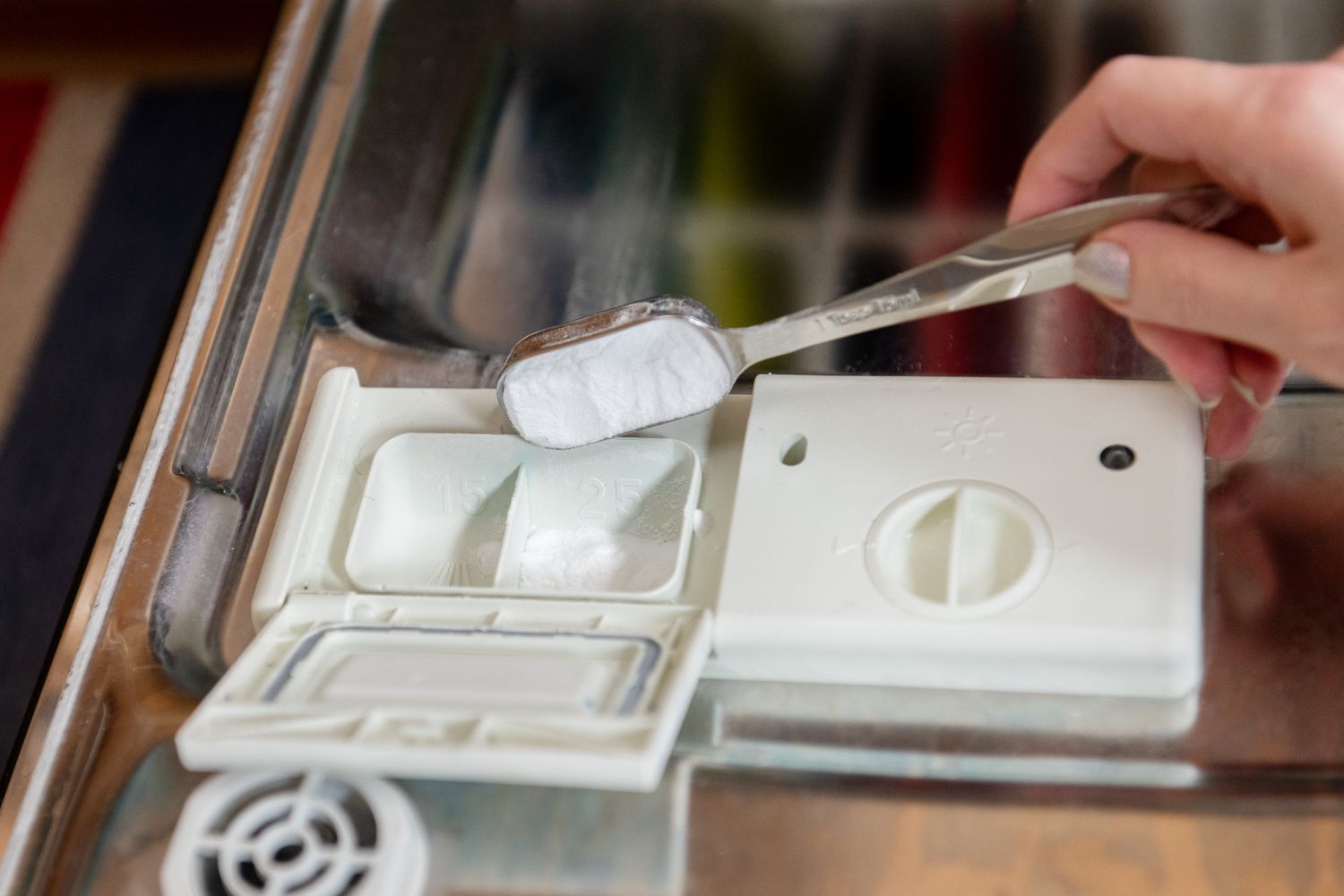

Interior Design
Can You Put Dish Soap In The Dishwasher? Experts Explain
Modified: October 20, 2024
Discover the truth about putting dish soap in the dishwasher. Read expert explanations and tips on interior design.
(Many of the links in this article redirect to a specific reviewed product. Your purchase of these products through affiliate links helps to generate commission for Storables.com, at no extra cost. Learn more)
Introduction
When it comes to keeping our dishware clean and sparkling, the dishwasher is a handy appliance that many of us rely on. However, have you ever found yourself running out of dishwasher detergent and wondering if you can simply use dish soap instead? It’s a common question that homeowners have pondered at least once in their lives.
In this article, we will explore the difference between dish soap and dishwasher detergent and delve into the potential consequences of using dish soap in your dishwasher. We’ll also hear from experts in the field to get their insights and recommendations on the matter. So, if you’ve ever wondered whether or not you can put dish soap in the dishwasher, this article will provide the answers you’re looking for.
Before we dive in, let’s clarify the distinction between dish soap and dishwasher detergent. While they may seem similar, they are actually formulated differently to cater to specific cleaning needs.
Key Takeaways:
- Using dish soap in the dishwasher can lead to excessive foaming, residue buildup, and potential damage to the appliance. Stick to using dishwasher detergent for optimal cleaning and to avoid potential issues.
- Experts unanimously advise against using dish soap in the dishwasher. Follow the manufacturer’s guidelines and use specifically formulated dishwasher detergents for clean, sanitized dishes and to maintain the longevity of your appliance.
Read more: Why Put Dish Soap In Bathtub At Night
Dish Soap vs Dishwasher Detergent: What’s the Difference?
Dish soap, also known as dishwashing liquid, is a cleaning agent specifically designed to remove grease, food particles, and stains from dishes, utensils, and cookware. It is typically used for handwashing dishes, where the main focus is on removing tough stains and providing a gentle cleansing effect on your hands.
Dishwasher detergent, on the other hand, is specifically formulated to work with the high heat and water pressure in your dishwasher. It contains enzymes and surfactants that break down food particles, grease, and stubborn stains, ensuring thorough cleaning of your dishes during the wash cycle.
Now that we understand the basic differences between dish soap and dishwasher detergent, let’s explore what happens when you use dish soap in your dishwasher.
Key Takeaways:
- Using dish soap in the dishwasher can lead to excessive foaming, residue buildup, and potential damage to the appliance. Stick to using dishwasher detergent for optimal cleaning and to avoid potential issues.
- Experts unanimously advise against using dish soap in the dishwasher. Follow the manufacturer’s guidelines and use specifically formulated dishwasher detergents for clean, sanitized dishes and to maintain the longevity of your appliance.
Read more: Why Put Dish Soap In Bathtub At Night
Dish Soap vs Dishwasher Detergent: What’s the Difference?
When it comes to keeping our dishware clean and germ-free, it’s important to choose the right cleaning agent for the job. This is where the distinction between dish soap and dishwasher detergent comes into play.
Dish soap, also known as dishwashing liquid, is a household product commonly used for handwashing dishes. It is designed to cut through grease, remove food particles, and leave your dishes sparkling clean. Dish soap typically comes in various scents and formulations to suit different preferences and needs. It is readily available and affordable, making it a convenient option for everyday dishwashing tasks.
On the other hand, dishwasher detergent is specifically formulated for use in automatic dishwashers. It is engineered to work with the high heat and water pressure present in dishwashers, ensuring effective cleaning and sanitization of your dishes. Dishwasher detergents come in different forms such as powders, gels, and pods, each designed to deliver optimal performance in removing tough stains and residue.
The primary difference between dish soap and dishwasher detergent lies in their formulations and intended usage. Dish soap is typically milder and gentler on hands, as it is meant to be used for manual dishwashing. It may not contain the same powerful enzymes and surfactants as dishwasher detergent, which are specifically designed to tackle dried-on food particles and grease.
When using a dishwasher, it is recommended to use dishwasher detergent instead of dish soap. This is because dishwasher detergents work more efficiently with the dishwasher’s specific cleaning mechanism, ensuring thorough cleaning and sanitization of your dishes. Using dish soap in the dishwasher may result in excessive foaming and residue buildup, leading to inefficient cleaning and potential damage to your dishwasher.
Furthermore, dishwasher detergents often contain additional ingredients such as rinse aids and water softeners. These additives help to prevent water spots, improve drying, and protect your dishes and glassware from etching and corrosion.
While it may be tempting to use dish soap as a temporary substitute for dishwasher detergent, it is best to avoid doing so to maintain the optimal performance and longevity of your dishwasher.
Now that we’ve looked at the differences between dish soap and dishwasher detergent, let’s explore what happens when you put dish soap in the dishwasher.
The Effects of Dish Soap in the Dishwasher
Using dish soap in the dishwasher may seem like a quick fix when you run out of dishwasher detergent, but it can have unintended consequences. The dishwasher is not designed to handle the foaming action and formulation of dish soap, which can lead to a variety of issues.
The first and most noticeable effect of using dish soap in the dishwasher is excessive foaming. Dish soaps are formulated to produce lather and suds when mixed with water, which is great for handwashing but can be problematic in a dishwasher. The high water pressure and heat inside the dishwasher can cause the foaming to intensify, resulting in a sudsy mess overflowing from the dishwasher.
Moreover, the excessive foam generated by dish soap can hinder the dishwasher’s cleaning action. The foam can trap and suspend food particles and grease, preventing them from being properly rinsed away. This can lead to residue and grime remaining on your dishes, negating the purpose of using a dishwasher.
In addition to foaming, using dish soap in the dishwasher can also cause residue buildup. Dish soaps contain additives and ingredients that are not suitable for the dishwasher’s cleaning mechanism. These substances can accumulate on the interior of the dishwasher, including the spray arms, filters, and seals, causing blockages and reducing the efficiency of the dishwasher.
Furthermore, the formulation of dish soap may not be compatible with the materials used in the dishwasher. Some dish soaps can be abrasive or corrosive, leading to potential damage to the interior of the dishwasher, such as etching or discoloration of delicate glassware and stainless steel surfaces.
Lastly, using dish soap in the dishwasher can void warranties and insurance coverage. Dishwasher manufacturers explicitly state in their manuals and guidelines to only use recommended dishwasher detergents to ensure proper functioning and avoid damage. If a malfunction or issue arises due to the use of dish soap, it may not be covered under warranty or insurance.
Overall, the effects of using dish soap in the dishwasher can range from minor inconveniences like excessive foaming to more serious problems like residue buildup and potential damage to the dishwasher. To avoid these issues, it’s best to stick to using dishwasher detergent specifically formulated for use in automatic dishwashers.
Now that we understand the effects of dish soap in the dishwasher, let’s delve into whether it is safe to use dish soap in this appliance.
What Happens When You Put Dish Soap in the Dishwasher?
Putting dish soap in the dishwasher may initially seem like a simple solution when you’re in a pinch, but the consequences can be quite messy. When dish soap is used in the dishwasher, several things can happen.
The most immediate and obvious effect is excessive foaming. Dish soaps are formulated to create lather and suds when mixed with water, which is beneficial for handwashing dishes. However, in the dishwasher, the high water pressure and temperature can cause the foaming action to escalate dramatically. As a result, you may find your kitchen flooded with a mass of soapy bubbles pouring out of the dishwasher.
Aside from the mess it creates, the excessive foam can interfere with the dishwasher’s cleaning process. The foam tends to trap food particles and greasy residues, preventing them from being adequately rinsed away. This can lead to dishes not being completely cleaned and sanitized, defeating the purpose of using a dishwasher in the first place.
Another consequence of using dish soap in the dishwasher is residue buildup. Dish soaps contain different additives and agents that are not designed for the specific cleaning mechanism of a dishwasher. As a result, these substances can accumulate in various parts of the dishwasher, such as the spray arms, filters, and seals. This buildup can obstruct water flow and hinder the dishwasher’s ability to effectively clean your dishes.
In addition to residue buildup, dish soap may not be compatible with the materials of your dishwasher. Some dish soaps can be abrasive or corrosive, leading to potential damage to the interior components of the dishwasher. For example, delicate glassware and stainless steel surfaces may become etched or discolored when exposed to certain dish soap formulations.
It’s worth noting that regular use of dish soap in the dishwasher can have long-term effects. The accumulation of residue and possible damage to the dishwasher can reduce its overall performance and lifespan. Additionally, using dish soap in the dishwasher can potentially void warranties and insurance coverage, as manufacturers explicitly advise against it in their guidelines.
Given these effects, it is clear that using dish soap in the dishwasher is not recommended. To ensure optimal cleaning results and the longevity of your dishwasher, it is best to stick with dishwasher detergents specifically formulated for use in automatic dishwashers.
Now that we understand what happens when you put dish soap in the dishwasher, let’s examine the expert opinion on using dish soap in this appliance.
Yes, you can put dish soap in the dishwasher, but only if it’s specifically labeled as dishwasher detergent. Regular dish soap will create too many suds and can cause a mess. Always use the appropriate detergent for best results.
Can You Use Dish Soap in the Dishwasher?
While it may be tempting to use dish soap as a substitute for dishwasher detergent, the answer to whether you can use dish soap in the dishwasher is a resounding no. Dish soap is not suitable for use in automatic dishwashers and can lead to various issues.
As mentioned earlier, dish soap creates excessive foam when mixed with water, which can result in a foamy mess when used in the dishwasher. The high water pressure and temperature inside the dishwasher intensify the foaming action, causing bubbles to overflow and potentially damage your kitchen floor or cabinetry.
Moreover, the foam created by dish soap can interfere with the dishwasher’s cleaning mechanism. The foam can trap food particles and grease, preventing them from being rinsed away effectively. This can leave behind residue on your dishes, making them appear dirty and unhygienic.
Using dish soap in the dishwasher can also lead to the accumulation of residue in different parts of the appliance. Dish soaps contain additives and agents that are not designed for use in dishwashers. These substances can build up in the spray arms, filters, and seals, impeding water flow and hindering the dishwasher’s cleaning performance.
Additionally, the chemicals and formulation of dish soap may not be compatible with the materials used in dishwashers. This can result in damage to the interior components of the dishwasher, such as etching or discoloration of glassware and stainless steel surfaces.
Experts strongly advise against using dish soap in the dishwasher. Dishwasher manufacturers typically include warnings in their manuals and guidelines, explicitly stating to use only recommended dishwasher detergents. Deviating from these recommendations can void warranties and insurance coverage, leaving you responsible for any damages that may occur.
Ultimately, it’s best to use dishwasher detergent specifically formulated for use in automatic dishwashers. These detergents are designed to work effectively with the dishwasher’s cleaning mechanism, providing optimum cleaning and sanitization results.
Now that we’ve established that using dish soap in the dishwasher is not recommended, let’s explore some alternatives to dishwasher detergent.
Experts’ Opinion on Using Dish Soap in the Dishwasher
When it comes to the question of using dish soap in the dishwasher, experts in the field are in agreement – it’s a practice that should be avoided. Dishwasher manufacturers and cleaning experts have weighed in on the matter, providing valuable insights on the potential consequences and risks associated with using dish soap in the dishwasher.
Experts unanimously emphasize that dish soap is formulated for handwashing dishes, where the focus is on removing stains and greasy residue from dishware while being gentle on the hands. These dish soaps create lather and suds, which are not suitable for the mechanics of a dishwasher.
Amy Roberts, spokesperson for Consumer Reports, advises against using dish soap in the dishwasher due to the excessive foaming it produces. She explains that the high water pressure and temperature in the dishwasher cause the foam to intensify, leading to a potentially catastrophic mess with soapy bubbles overflowing from the dishwasher.
Appliance manufacturers also warn against using dish soap in dishwashers. Companies such as Whirlpool, Bosch, and LG explicitly state in their product manuals and guidelines to only use recommended dishwasher detergents. These guidelines are in place to ensure the best cleaning performance, protect the appliance, and maintain warranty coverage.
Bob Vila, home improvement expert, emphasizes that using dish soap in the dishwasher can create long-term issues. He notes that the excessive foam and residue buildup can clog the dishwasher’s spray arm and impede water circulation, leading to inefficient and unsanitary cleaning results. Vila further highlights that the abrasive or corrosive nature of some dish soaps can damage delicate glassware and stainless steel surfaces.
In a blog post for The Kitchn, Cheryl Malik, a professional chef, echoes the sentiment that using dish soap in the dishwasher is a recipe for disaster. She points out that dish soap lacks the enzymes and surfactants found in dishwasher detergents, which are necessary for effectively breaking down food particles and grease during the wash cycle.
In summary, experts strongly advise against using dish soap in the dishwasher. The excessive foaming, potential residue buildup, and possible damage to the appliance outweigh any perceived benefits of using dish soap as a substitute for dishwasher detergent. To ensure optimal cleaning performance and prevent damage to your dishwasher, it is best to adhere to the recommendations of dishwasher manufacturers and use specifically formulated dishwasher detergents.
Now that we’ve delved into the expert opinions, let’s explore some alternative options to dishwasher detergent.
Alternatives to Dish Soap in the Dishwasher
While using dish soap in the dishwasher is not recommended, there are alternative options to consider when you find yourself in need of dishwasher detergent. These alternatives can help you maintain the cleanliness and hygiene of your dishes without compromising the functionality of your dishwasher.
1. Dishwasher Detergent Pods: Similar to laundry detergent pods, dishwasher detergent pods are pre-measured packets that contain the right amount of detergent for a single load. They are convenient to use and eliminate the need for measuring or pouring detergent. Simply place a pod in the detergent dispenser or directly in the bottom of the dishwasher and run the cycle as normal.
2. Homemade Dishwasher Detergent: If you prefer a DIY approach, you can make your own dishwasher detergent using common household ingredients. A common recipe includes mixing equal parts of baking soda and borax, along with a few drops of liquid dish soap, to form a powder. This homemade detergent can be used in place of commercial dishwasher detergent, but it’s important to note that it may not have the same enzyme or surfactant power.
3. Citric Acid or Vinegar: Citric acid and vinegar can be effective in removing hard water stains and residue from dishes and the dishwasher. To use citric acid, dissolve one tablespoon of the powder in the bottom of the dishwasher before running a cycle. For vinegar, fill a dishwasher-safe bowl with white vinegar and place it on the top rack, then run the dishwasher as normal. These natural alternatives can help cut through grease and leave your dishes clean and shiny.
4. Lemons: Lemons are a natural way to freshen and disinfect your dishwasher. Cut a lemon in half and place both halves in the utensil rack or dishwasher tray. The acidic properties of the lemon help to remove odors and leave your dishwasher smelling fresh. However, keep in mind that lemons alone are not a substitute for dishwasher detergent and should be used in conjunction with a proper detergent or alternative.
5. Rinse Aid: Utilizing a rinse aid in your dishwasher can improve drying performance and help prevent water spots and residue from forming on your dishes. Many dishwasher manufacturers recommend using a rinse aid in addition to detergent for optimal results. Simply add a rinse aid to the designated dispenser in your dishwasher, following the manufacturer’s instructions.
These alternatives can be used as temporary solutions when you run out of dishwasher detergent or as a supplement to enhance the cleaning performance. However, it’s important to note that they may not provide the same level of cleaning power as commercial dishwasher detergents specifically formulated for use in automatic dishwashers.
Remember, maintaining the integrity of your dishwasher and ensuring clean and sanitized dishes is best achieved by using the appropriate dishwasher detergent recommended by the manufacturer. This will ensure the longevity and optimal performance of your appliance.
Now that we’ve explored some alternatives to dishwasher detergent, let’s discuss how to properly use dishwasher detergent for the best results.
How to Properly Use Dishwasher Detergent
Using dishwasher detergent properly is key to achieving clean and sparkling dishes after each wash cycle. Here are some guidelines to follow to ensure you get the best results:
1. Read the Manufacturer’s Instructions: Start by reading the dishwasher manufacturer’s instructions and guidelines. Different dishwasher models may have specific recommendations for detergent type and usage, so it’s important to familiarize yourself with these guidelines.
2. Use the Recommended Amount: Most dishwasher detergents come with dosage instructions on the packaging. Measure out the appropriate amount of detergent according to the level of soiling and water hardness in your area. Using too little detergent may result in ineffective cleaning, while using too much could lead to excessive suds and residue buildup.
3. Load Dishes Properly: Arrange your dishes, utensils, and cookware properly in the dishwasher to ensure maximum cleaning efficiency. Ensure that nothing is blocking the spray arms or the detergent dispenser. Overcrowding the dishwasher may impede water circulation and hinder the detergent’s ability to clean effectively.
4. Place Detergent in the Dispenser: Add the measured detergent to the dishwasher’s detergent dispenser. Most dishwashers have a main detergent dispenser located on the dishwasher door. Some models also come with additional compartments for rinse aid or pre-wash detergent, if needed. Make sure not to overload the dispenser and avoid getting detergent on the door gasket or interior surfaces.
5. Select the Appropriate Wash Cycle: Choose the right wash cycle for the load of dishes you’re cleaning. Most dishwashers offer a variety of cycles, such as light, normal, heavy, or eco-friendly, depending on the level of soiling and the type of dishes. Refer to the dishwasher’s manual to determine the most suitable cycle for your needs.
6. Add Rinse Aid, if Desired: If you want to enhance drying performance and prevent water spots, consider adding rinse aid to the designated dispenser in your dishwasher. Follow the manufacturer’s instructions for the correct amount and refill the rinse aid when needed.
7. Run the Dishwasher: Close the dishwasher door securely and start the wash cycle according to the selected settings. It’s advisable to run the dishwasher when it is full to ensure optimal water distribution and energy efficiency.
By following these steps, you can effectively use dishwasher detergent and maximize the cleaning power of your appliance. Proper loading techniques, using the recommended amount of detergent, and selecting the appropriate cycle will ensure that your dishes emerge clean, sanitized, and ready to use.
Remember to regularly maintain and clean your dishwasher by removing food debris and descaling the dishwasher as needed. This will help prolong the life of your appliance and maintain its optimal performance.
Now that we’ve covered how to use dishwasher detergent properly, let’s conclude our exploration of dish soap and dishwasher detergent.
Conclusion
In conclusion, when it comes to the question of using dish soap in the dishwasher, it is best to avoid it altogether. Dish soap and dishwasher detergent serve different purposes and are formulated differently to cater to their respective cleaning needs. While dish soap is designed for handwashing dishes, dishwasher detergent is specifically tailored for use in automatic dishwashers.
Using dish soap in the dishwasher can lead to excessive foaming, residue buildup, and potential damage to the appliance. The foam generated by dish soap can interfere with the dishwasher’s cleaning action, resulting in poorly cleaned dishes and unhygienic conditions. Additionally, the ingredients in dish soap are not compatible with the materials and mechanisms of dishwashers, potentially causing damage and reducing the dishwasher’s overall performance.
Experts in the field unanimously advise against using dish soap in the dishwasher. Appliance manufacturers and cleaning experts recommend following the guidelines provided in the dishwasher’s manual and using dishwasher detergents that are specifically formulated for use in automatic dishwashers.
If you run out of dishwasher detergent, there are alternative options available. Dishwasher detergent pods, homemade dishwasher detergent, citric acid or vinegar, and rinse aid can provide temporary solutions or supplemental cleaning power. However, it’s important to note that these alternatives may not have the same enzyme and surfactant power as commercial dishwasher detergents.
To achieve the best results, it is crucial to properly use dishwasher detergent by following the manufacturer’s instructions, using the recommended amount, loading dishes properly, and selecting the appropriate wash cycle. Adding rinse aid, if desired, can enhance drying performance and prevent water spots.
By adhering to these guidelines and maintaining your dishwasher regularly, you can ensure clean, sanitized dishes and prolong the life of your appliance.
Remember, a properly functioning dishwasher with the right detergent is a valuable asset in your kitchen, providing convenience, time savings, and clean dishware. So, resist the temptation to use dish soap in the dishwasher and opt for dishwasher detergent designed specifically for the task at hand.
Your dishes and dishwasher will thank you in the long run!
Frequently Asked Questions about Can You Put Dish Soap In The Dishwasher? Experts Explain
Was this page helpful?
At Storables.com, we guarantee accurate and reliable information. Our content, validated by Expert Board Contributors, is crafted following stringent Editorial Policies. We're committed to providing you with well-researched, expert-backed insights for all your informational needs.
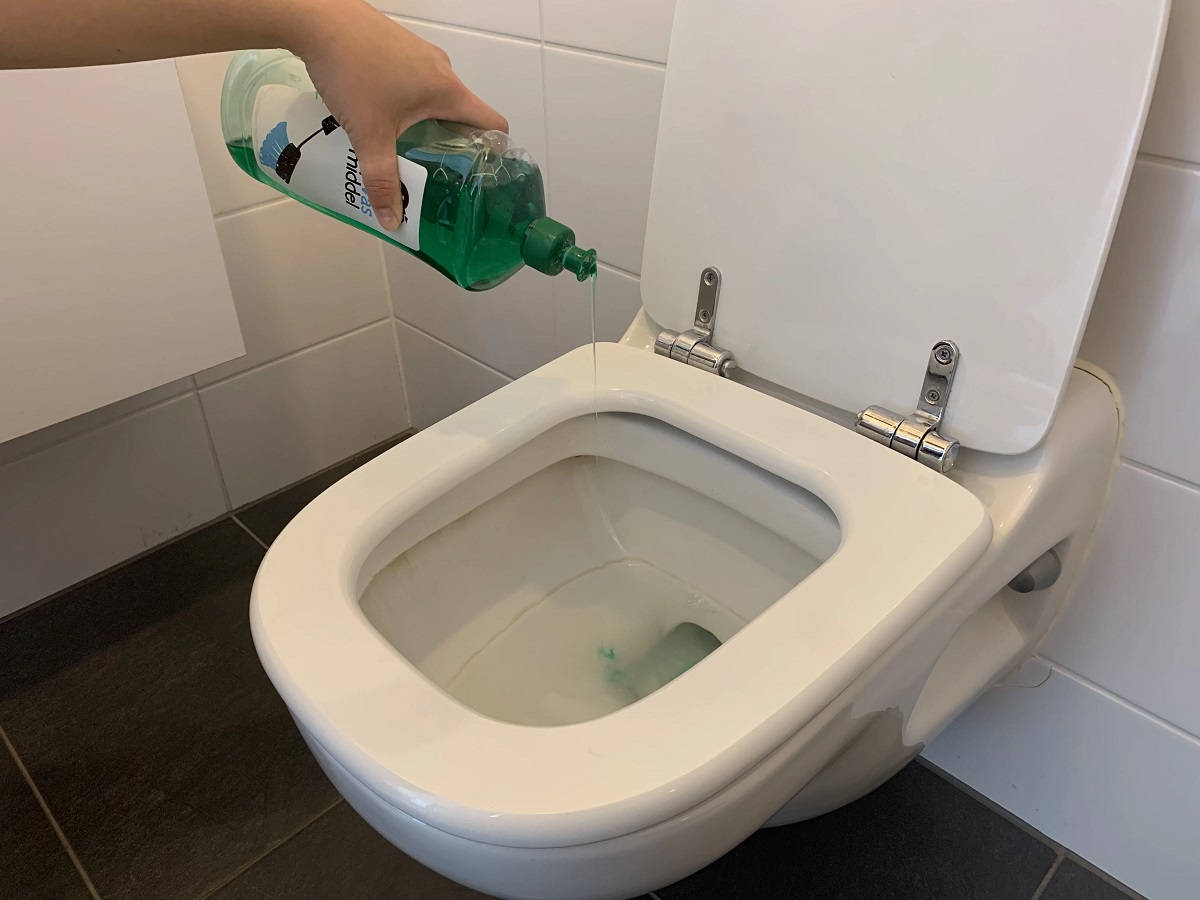
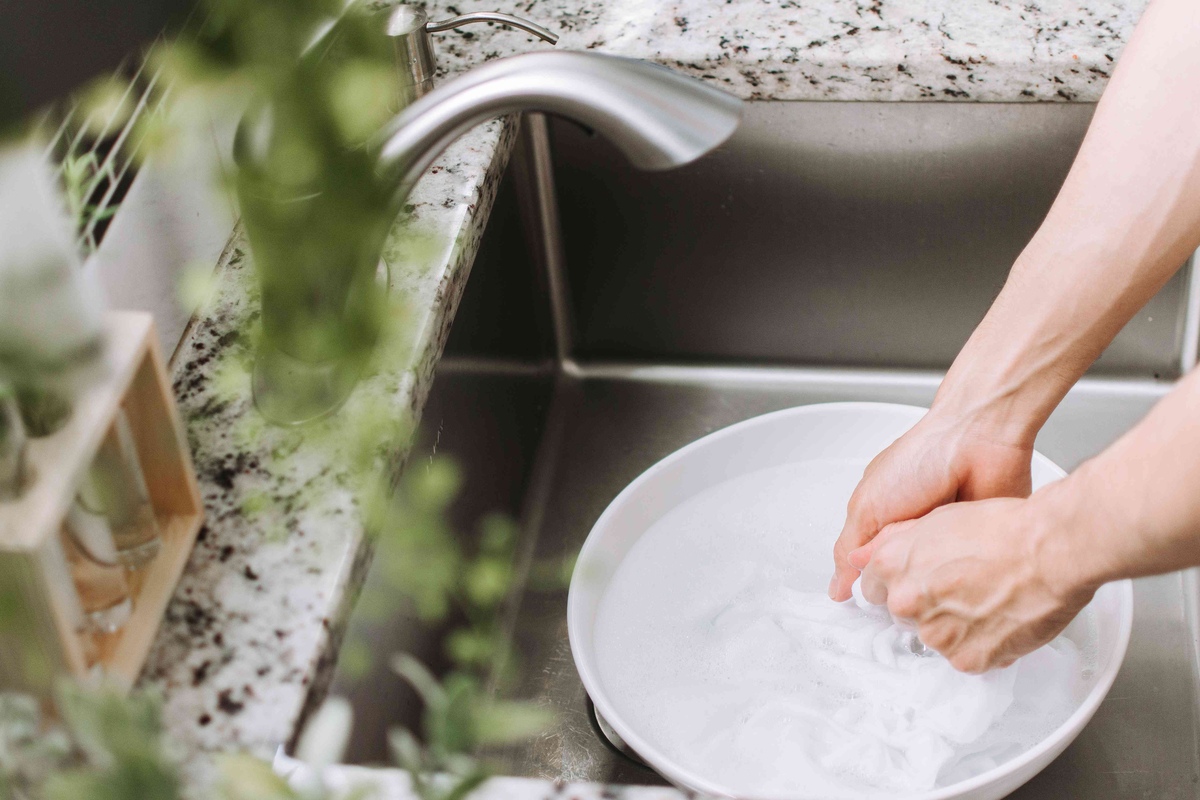
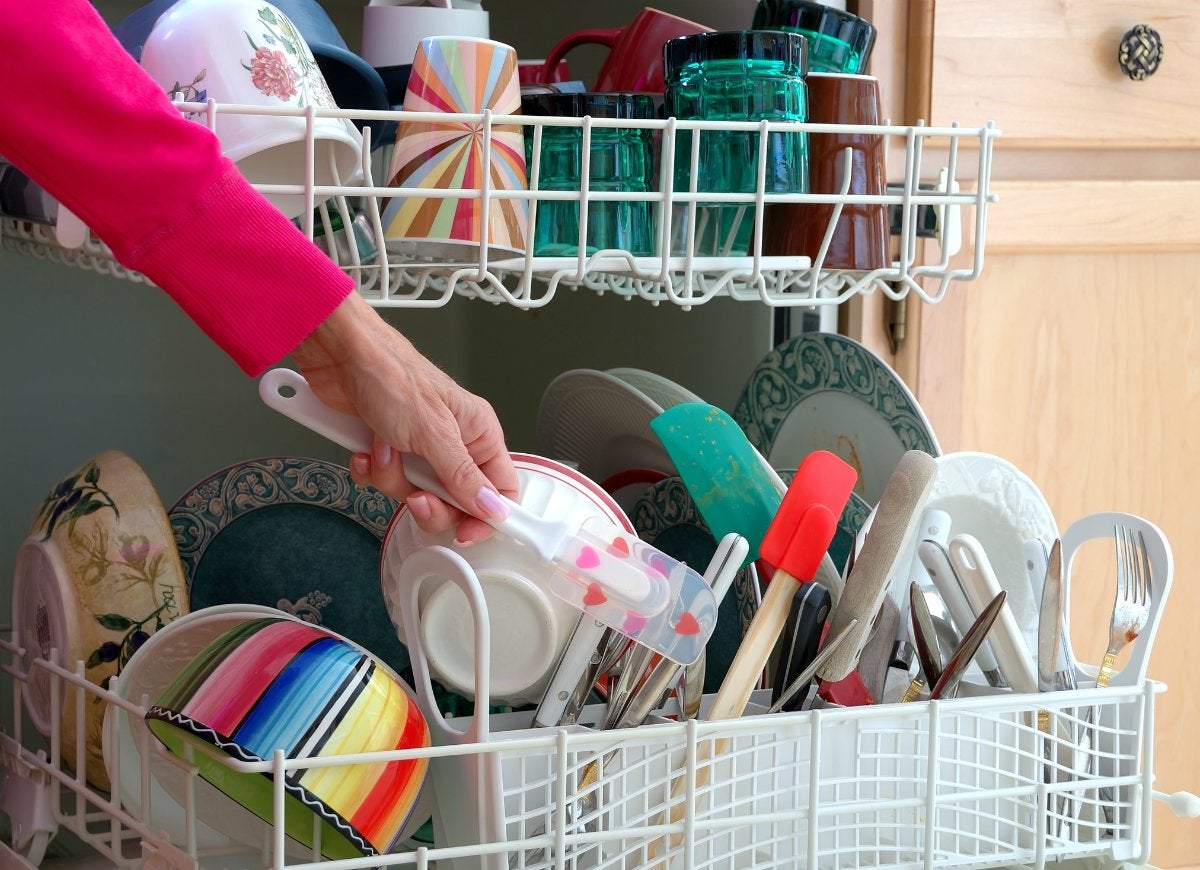
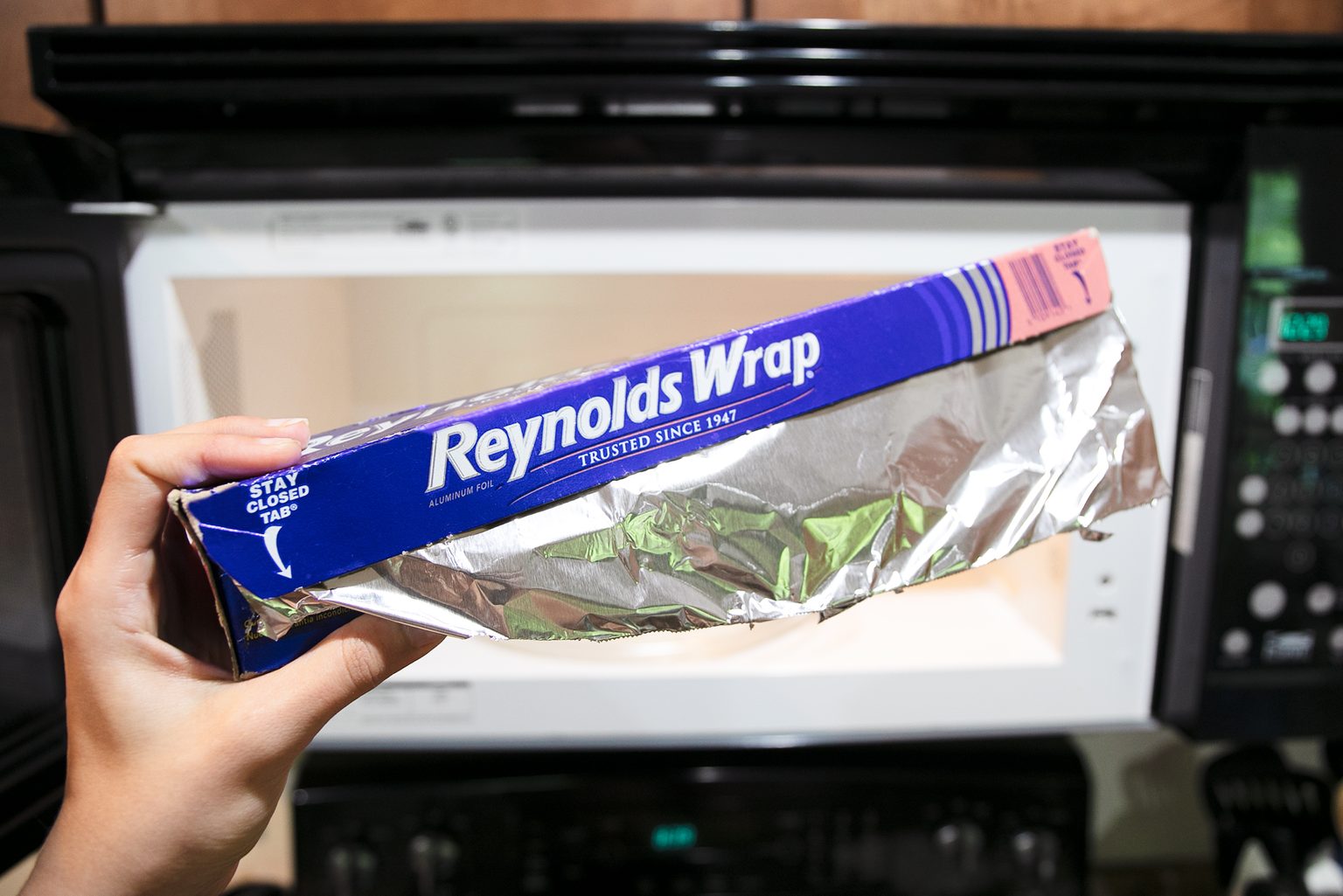
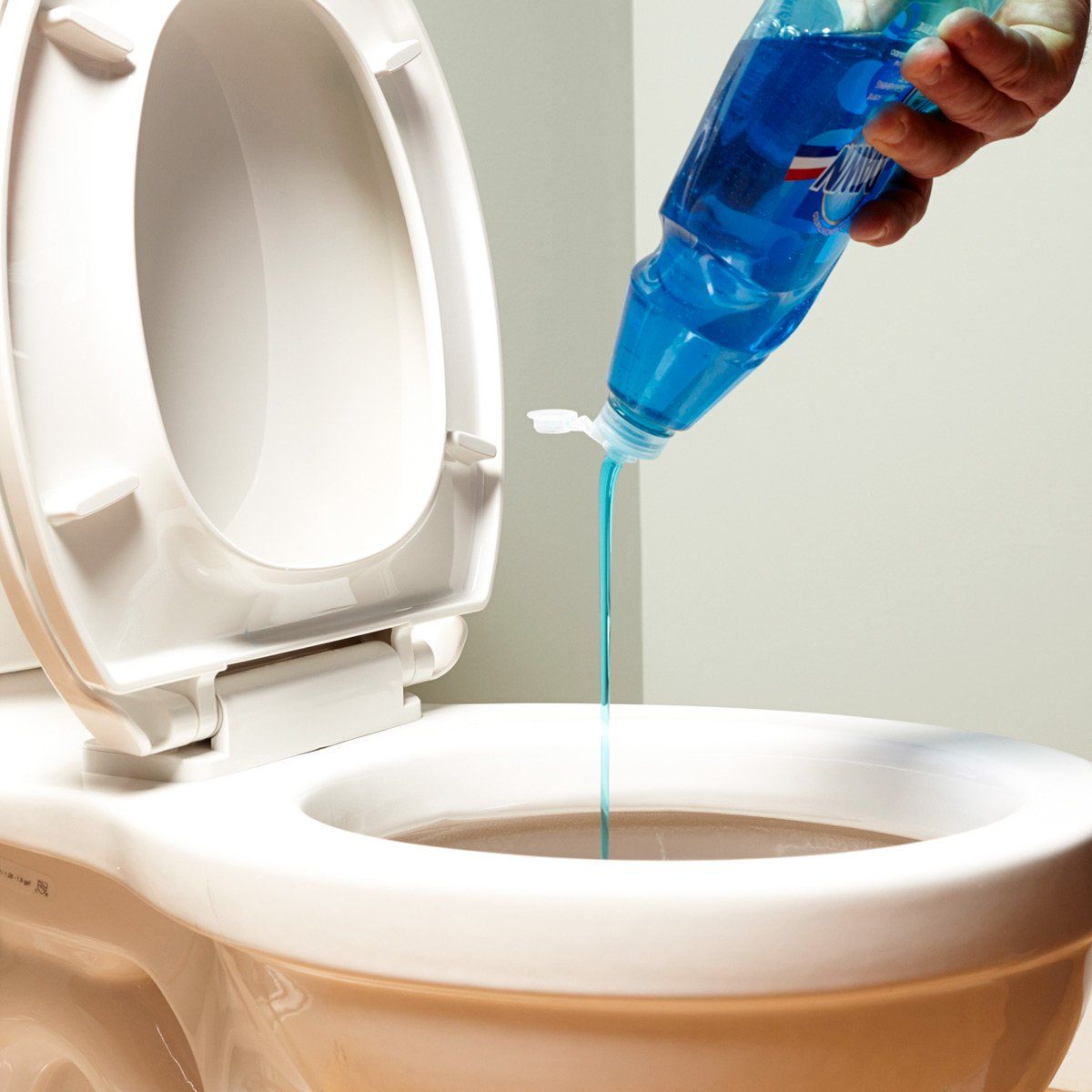

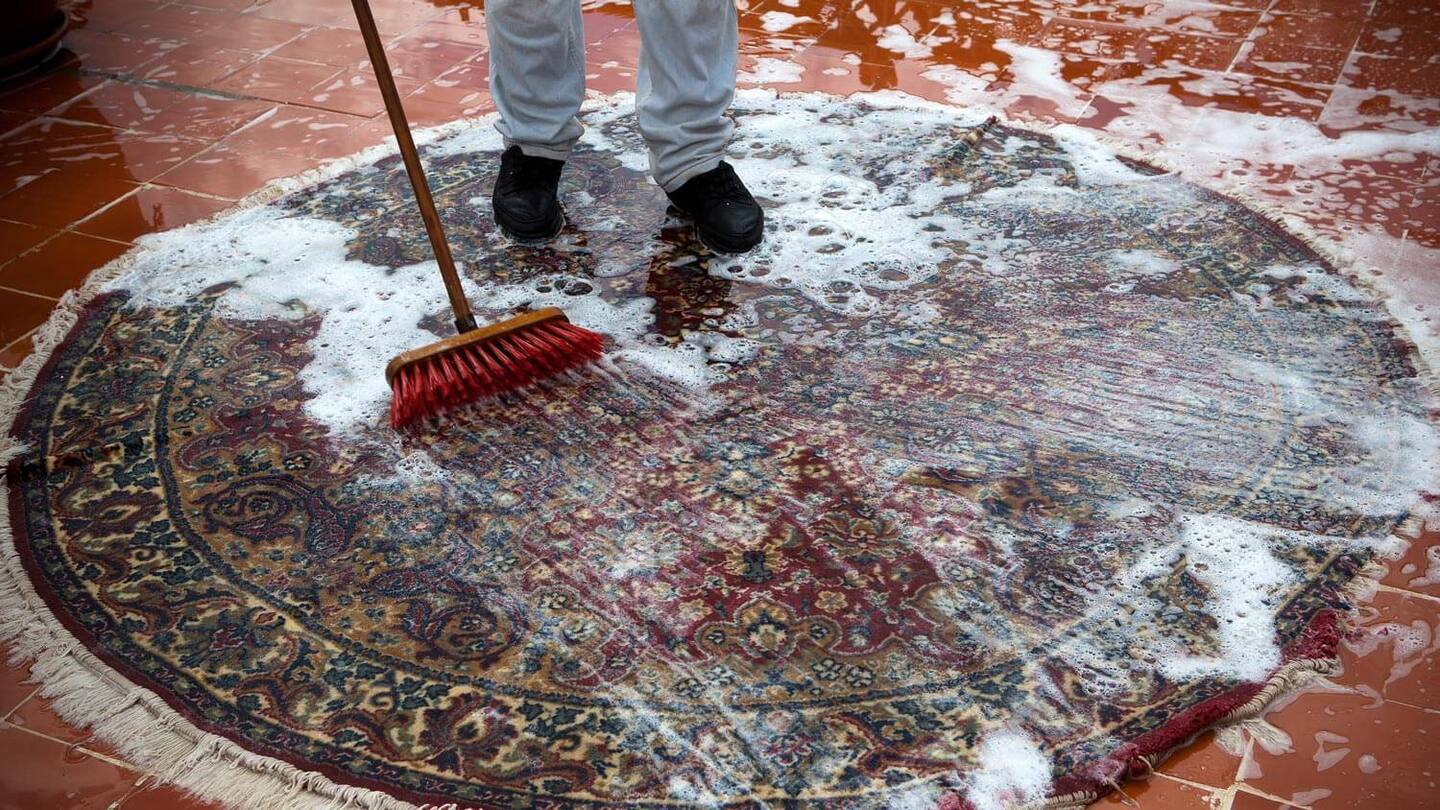
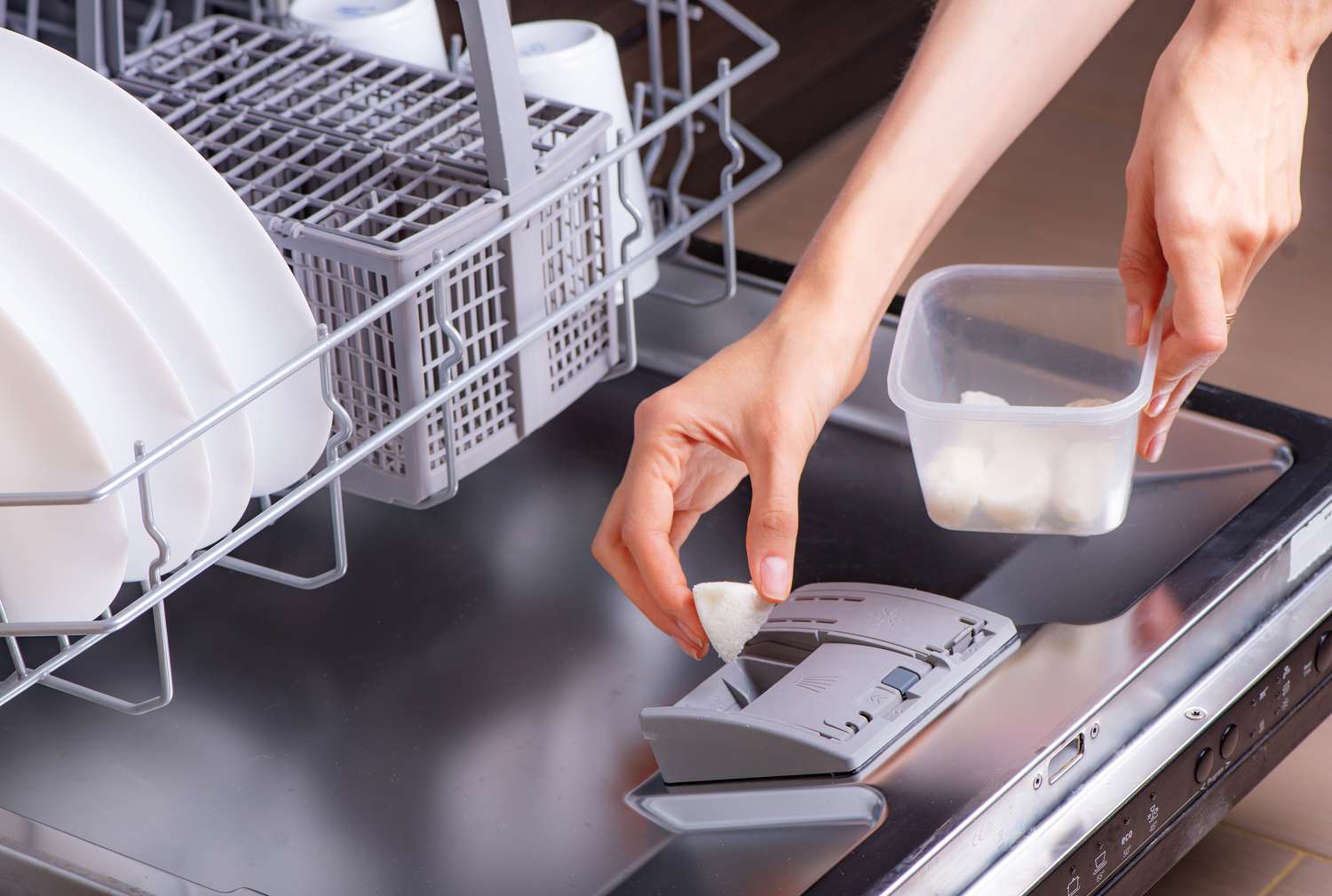
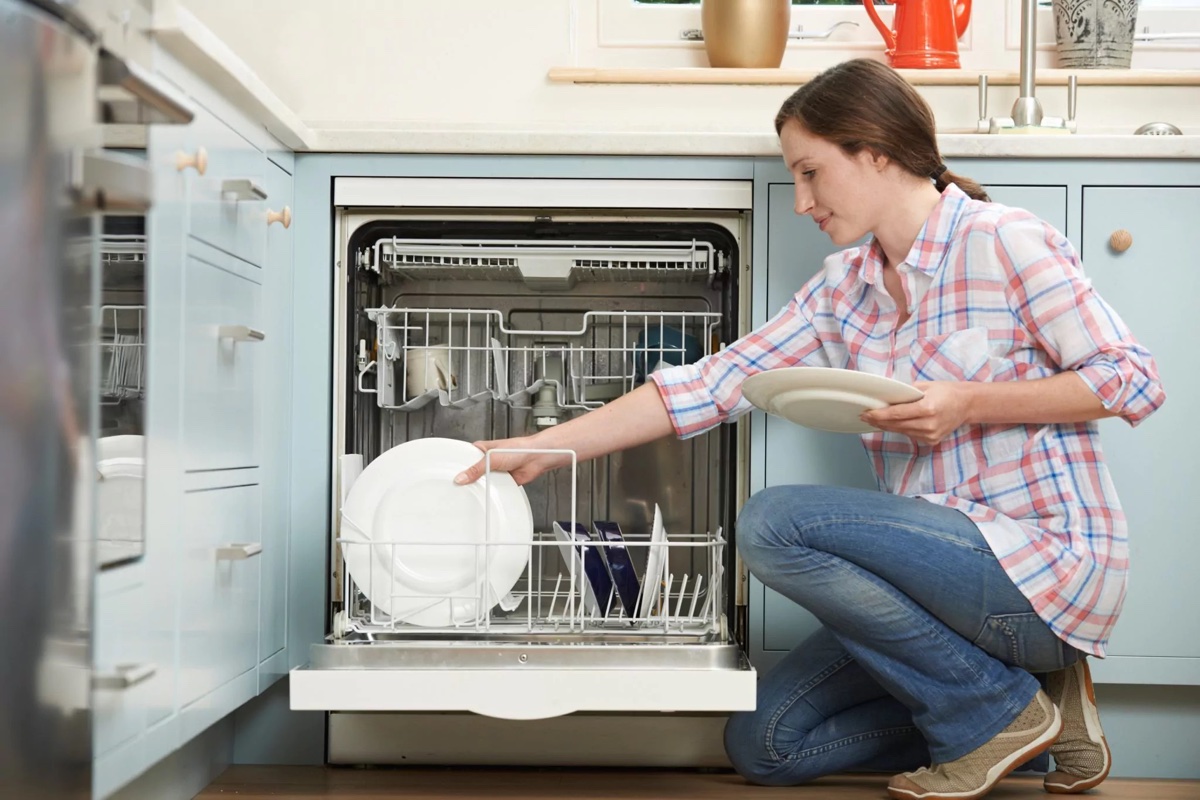

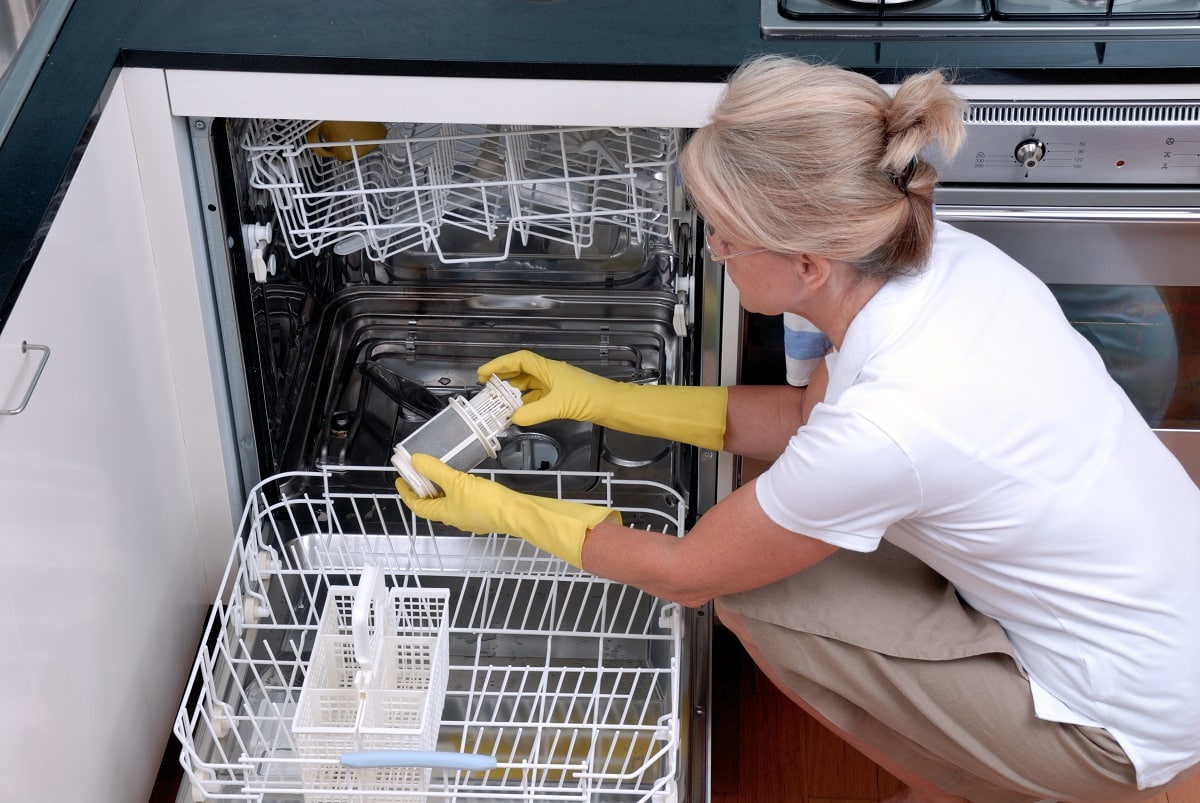
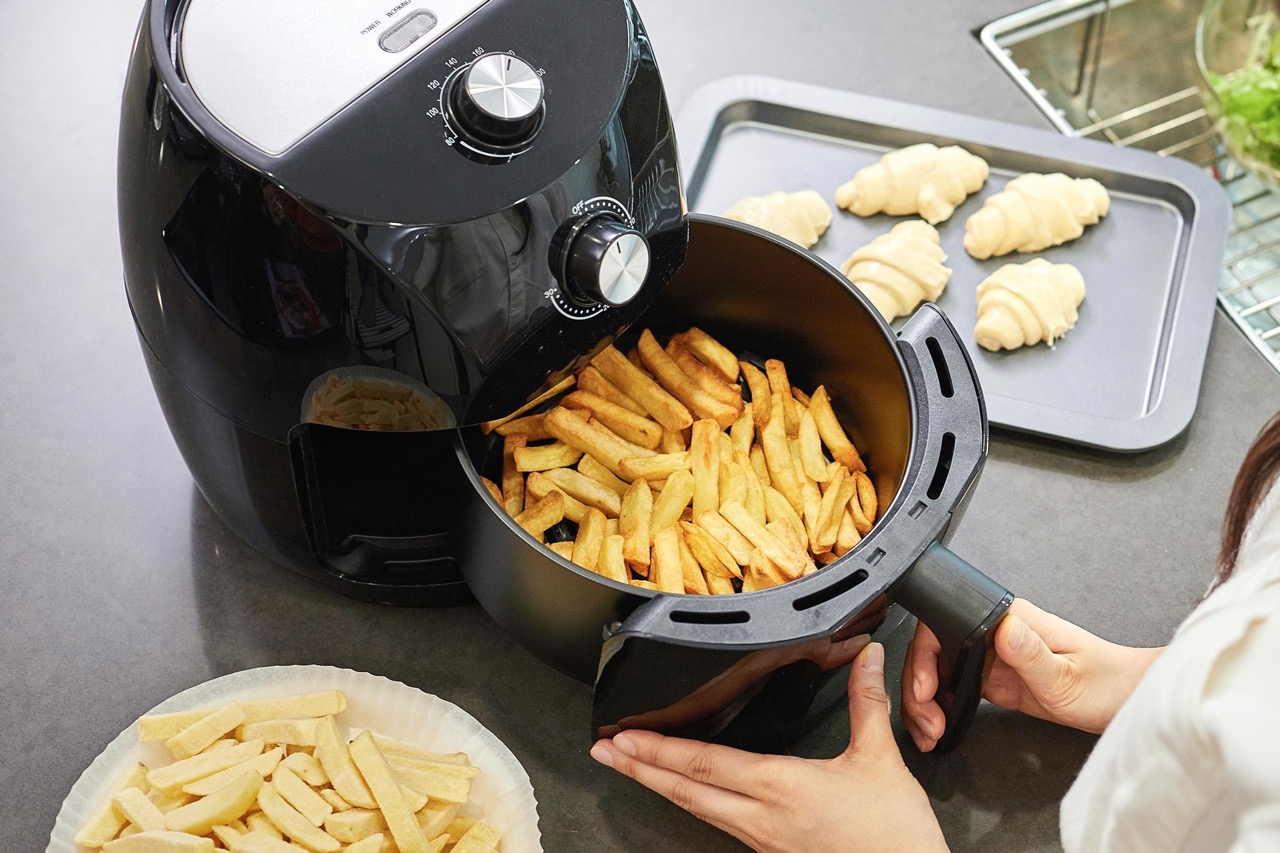


0 thoughts on “Can You Put Dish Soap In The Dishwasher? Experts Explain”